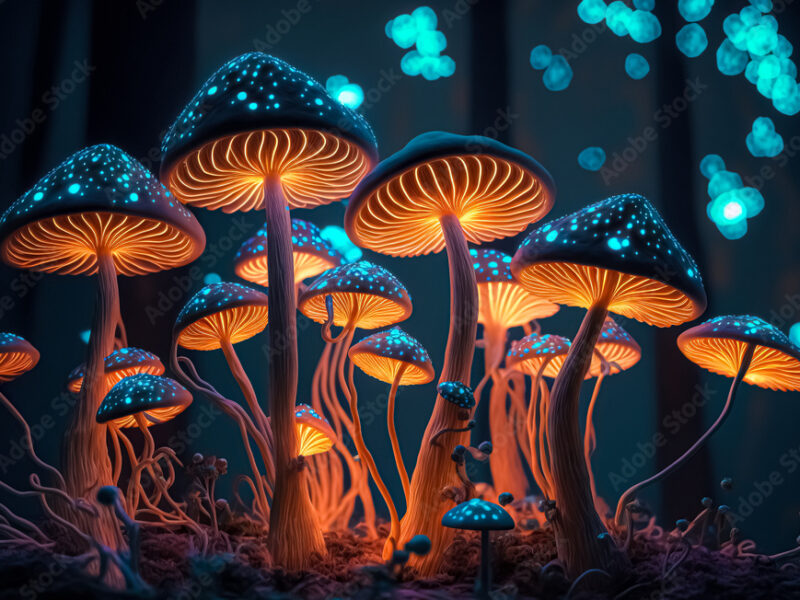Psilocybin, also known as magic mushrooms, has been the subject of extensive research in recent years. Despite being a Schedule I controlled substance in the United States, researchers have been studying the potential therapeutic effects of psilocybin in treating a range of mental health conditions. Let’s explore some of the research done on psilocybin and its potential therapeutic benefits.
Treatment of Depression and Anxiety
One of the most promising areas of research on psilocybin is its potential as a treatment for depression and anxiety. In a clinical trial conducted by Imperial College London, patients with treatment-resistant depression were given a single dose of psilocybin. The results showed that the patients experienced a significant reduction in symptoms, with some even experiencing complete remission. Another study, conducted by Johns Hopkins University, found that psilocybin-assisted psychotherapy was effective in reducing symptoms of anxiety and depression in cancer patients. Participants reported a significant improvement in their mood, outlook on life, and quality of life.
Treatment of Addiction
Psilocybin has also shown potential in the treatment of addiction. A study published in the Journal of Psychopharmacology found that psilocybin-assisted psychotherapy was effective in helping people quit smoking. Participants who received psilocybin reported significantly reduced cravings and a higher likelihood of quitting smoking than those who received a placebo.
Treatment of Cluster Headaches
Cluster headaches are a type of headache that can be extremely painful and debilitating. A small study published in the journal Neurology found that psilocybin was effective in treating cluster headaches. Participants reported a significant reduction in the frequency and intensity of their headaches after receiving a single dose of psilocybin.
Increase in Creativity and Openness
Psilocybin has also been found to increase creativity and openness. A study conducted by the Beckley Foundation found that participants who received psilocybin reported an increase in their creativity and openness to new experiences. The results of this study suggest that psilocybin may have the potential to enhance creative thinking and problem-solving.
The research on psilocybin is still in its early stages, but the results so far are promising. Psylocibin has shown potential as a treatment for depression, anxiety, addiction, and cluster headaches, and as an enhancer of creativity and openness. However, it’s important to note that psilocybin is still a controlled substance, and more research is needed to fully understand its potential therapeutic benefits. If you’re considering using psilocybin for therapeutic purposes, it’s essential to do so under the guidance of a qualified healthcare professional.
Here’s to your Health,
~Your Neighborhood Health Dealing Nutritionist & Chef~ K
References:
- Carhart-Harris, R. L., Bolstridge, M., Rucker, J., Day, C. M. J., Erritzoe, D., Kaelen, M., … Nutt, D. J. (2016). Psilocybin with psychological support for treatment-resistant depression: An open-label feasibility study. The Lancet Psychiatry, 3(7), 619–627.
- Griffiths, R. R., Johnson, M. W., Carducci, M. A., Umbricht, A., Richards, W. A., Richards, B. D., … Klinedinst, M. A. (2016). Psilocybin produces substantial and sustained decreases in depression and anxiety in patients with life-threatening cancer: A randomized double-blind trial. Journal of Psychopharmacology, 30(12), 1181–1197.
- Garcia-Romeu, A., Kersgaard, B. M., & Addy, P. H. (2016). Clinical applications of hallucinogens: A review. Experimental and Clinical Psychopharmacology, 24(4), 229–268.



 5 Amazing Health Benefits of Reishi Mushrooms You Should Know About
5 Amazing Health Benefits of Reishi Mushrooms You Should Know About

